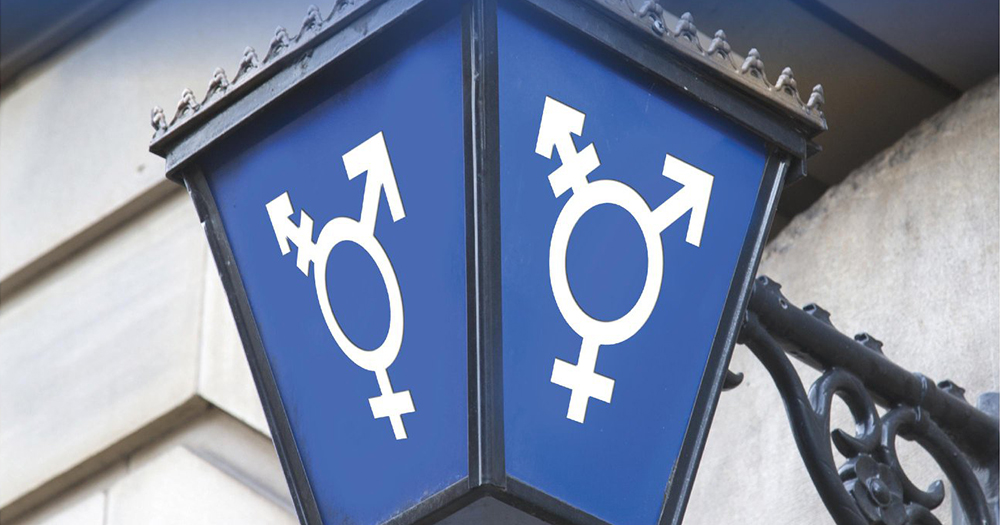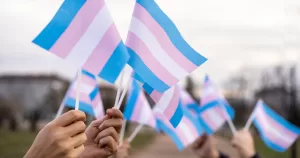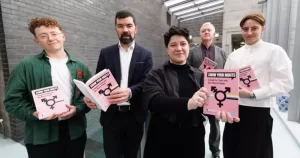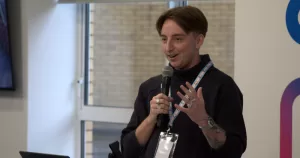The trans community are far less likely to express high levels of trust in An Garda Síochána when compared to the general public, a new report has found. Just 8% of trans people interviewed rated trust in police as ‘very high’. This compares to 43% of the majority population from a similar survey on public attitudes towards Gardaí conducted in 2017.
The findings from the report, Gendered Policing and Policing Gender: The Trans Community and An Garda Síochána, indicate that trans people (44%) are half as likely as the general public (84%) to find members of the force ‘friendly and helpful’ or to categorise themselves as ‘very satisfied’ with An Garda Síochána (34% against 69%).
Asst. Garda Commissioner for Dublin, Pat Leahy, was prompted to imagine himself in the place of a trans person trying to report a crime to Gardaí.
No small achievement from @TENI_Tweets & @HHRGatUL at launch of their new report on garda interaction with trans community. pic.twitter.com/pfIdwqimsv— Irish Council for Civil Liberties ?️? (@ICCLtweet) December 13, 2018
Supporting the initiative, Assistant Garda Commissioner (Dublin Metropolitan Area) Patrick Leahy formally launched the report at an event at the offices of the Transgender Equality Network Ireland (TENI) in Dublin this afternoon.
Speaking in advance of the launch TENI Chief Executive Stephen O’Hare said:
“Members of our community have long expressed their frustrations to TENI at the distinct lack of ‘trans awareness’ among members of An Garda Síochána.
“While many everyday interactions between members of our community and members of the force occur without incident, issues such as misgendering, difficulties in processing of official documents, poor experiences when reporting transphobic crimes and lack of meaningful outcomes for victims of crimes can have a profoundly negative impact on the levels of trust and confidence in the Gardaí”, he added.
The report was produced for TENI by Amanda Haynes and Jennifer Schweppe of the University of Limerick’s Hate and Hostility Research Group.
Dr. Amanda Haynes of @HHRGatUL explains the context in which the 'Gendered Policing and Policing Gender: The Trans Community and An Gardai Síochána' report was carried out. pic.twitter.com/52mutjRNOn
— TENI (@TENI_Tweets) December 13, 2018
Commenting on the findings of the report Amanda Haynes said:
“It’s important to recognise that there are examples of good practice in the service. In recording anti-transgender hate crime, for instance, An Garda Síochána has shown a willingness to engage with the needs of the trans community. That said, the experiences of trans people reported to us highlight issues of concern. Although An Garda Síochána has high levels of confidence amongst the general population, these are not reflected among the trans respondents to this research.”
Co-author of the report Jennifer Schweppe said:
“The inconsistencies in people’s experiences and perceptions of the service can and should be addressed through policy and training across the force. While some commendable steps have been taken to engage with the community, until every member of society can have equal confidence, trust, and satisfaction from An Garda Síochána, the job will not be done.”
The report was produced with financial support from the Irish Research Council.
© 2018 GCN (Gay Community News). All rights reserved.
Support GCN
GCN is a free, vital resource for Ireland’s LGBTQ+ community since 1988.
GCN is a trading name of National LGBT Federation CLG, a registered charity - Charity Number: 20034580.
GCN relies on the generous support of the community and allies to sustain the crucial work that we do. Producing GCN is costly, and, in an industry which has been hugely impacted by rising costs, we need your support to help sustain and grow this vital resource.
Supporting GCN for as little as €1.99 per month will help us continue our work as Ireland’s free, independent LGBTQ+ media.




